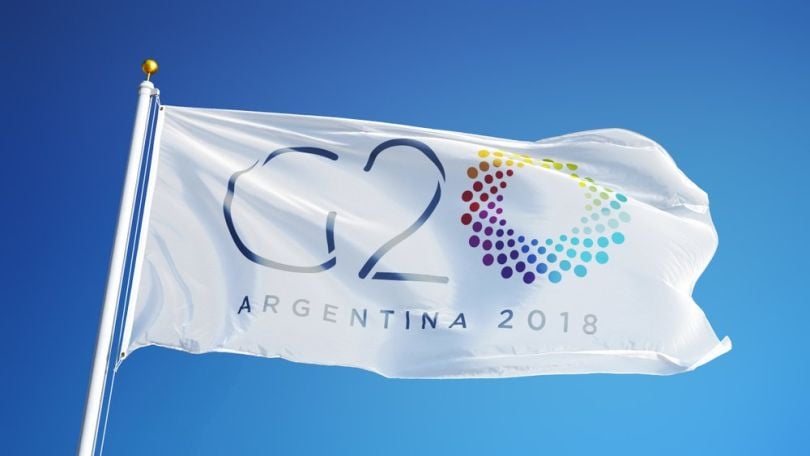
The G20 Summit brings world leaders together to discuss the most pressing global issues and according to Blockchain News, cryptocurrency did not slip through their radar.
Blockchain News reports that G20 leaders jointly issued a document calling for “a taxation system for cross-border electronic services”, with 2020 as the target year for final regulations that meet Financial Action Task Force (FATF) standards.
The move is seen as a sign of cryptocurrencies’ maturity and the need for regulation, taxation and reporting. While regulation can be seen as growing pains, it is necessary to reap the benefits of mainstream adoption for cryptocurrencies.
Blockchain News asked Brent Jaciow, Head of Blockchain Affairs at Utopia Music, music data tracking platform, to weigh in with his thoughts:
“This is a huge step in the right direction for the industry. Providing regulatory oversight and a framework for how to think about owning, investing, and the taxation of the asset class allows larger entities to seriously evaluate the space. Without the exact knowledge of the above, these entities would remain on the sidelines.
“Much like global capital markets, there is nothing large corporations fear more than uncertainty, especially as it relates to legal status and taxation. Cryptocurrencies do not pose a risk to financial stability. While the cryptocurrency markets are currently valued at $130bn, this is a small amount in comparison to global stock and bond markets which are valued in the trillions of dollars.”
"It is exciting to see that some of the most powerful countries in the world recognize not just the potential benefits of cryptocurrencies and new technologies, but also the importance of having international standards to regulate them."
For Robertas Višinskis, founder of open source foundation Mysterium Network, an open source, not-for-profit foundation, this step validates blockchain’s potential:
“It is exciting to see that some of the most powerful countries in the world recognize not just the potential benefits of cryptocurrencies and new technologies, but also the importance of having international standards to regulate them.
This will be a challenge given the different ways some of the G20 member states have started to regulate crypto assets. China has tough regulation around cryptocurrencies, but welcomes investment in blockchain, whereas the UK is yet to release any laws or regulations surrounding cryptocurrencies. In order for common standards to be established and universal regulation to work, the G20 member states are going to have to come to a compromise.”



